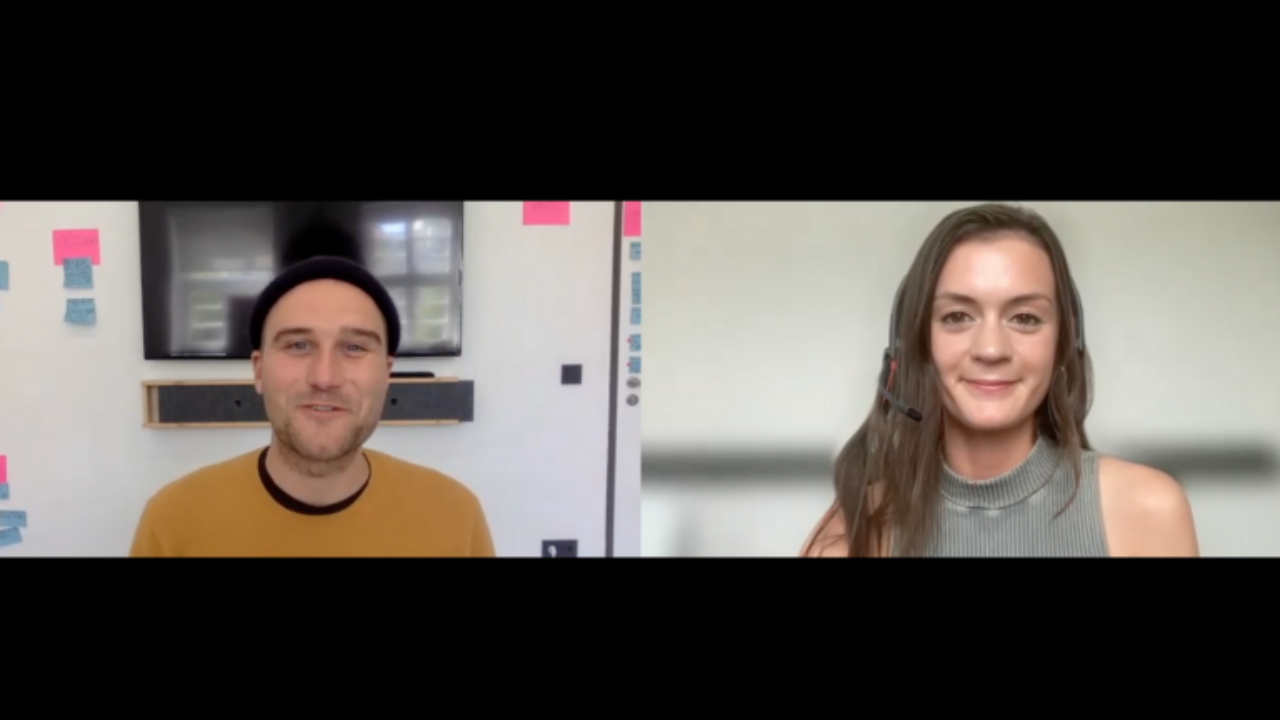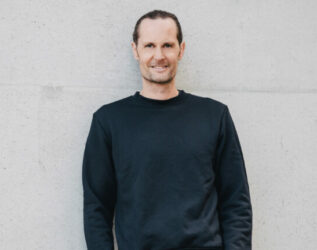Combatting climate change with LFCA Co-founder Philippe Singer

In this video interview with Leaders for Climate Action (LFCA) Co-founder, Philippe Singer, we discuss the role LFCA will play in driving climate action in 2030, starting points for companies to become more sustainable, dealing with climate related stress and anxiety, how to achieve real systemic change and more. The written version is also available below. Thank you Philippe for sharing your thoughts!

Who are you and what are you doing?
We initiated Leaders for Climate Action about three years ago. Back in the day it was an impulse to look at the tech industry. We were so disappointed that too many people were talking but not so many people were acting. Instead, we had the feeling there was a lot of blaming and pointing fingers at other industries. Us, the digital industry, were simply saying “we are not the worst, therefore we can be slow to act as well.” We founded Leaders for Climate Action because we believe in the opposite. The digital industry can become the first industry that can run completely climate neutral or even climate positive. And at the same time it brings about growth and healthy organizations. That’s why we set it up as a non profit organization, we wanted to accelerate this change. That is our big goal.
Our approach has two angles. The first one is an easy approach but extremely efficient. In the past three years we have been approaching managers, founders, partners, not only of clean tech companies, but of the biggest companies and biggest venture capital funds out there. And we invite these decision makers to become part of our community and also ask for clear commitment. To measure and reduce their carbon footprint. By doing this we have more than 1,700 organizations who started their climate journey because of this and we are very happy to get them involved with it. The second angle, for me which is even more important, is we are really trying to get people onboard with this idea that we cannot just focus on our sphere of control. Meaning our office, our energy consumption, our flying behavior or our travelling behavior, but we need to really focus on a holistic way of driving climate action. How can I engage all my stakeholders and get them to take climate action as well.
Please provide a few examples of this.
The first community campaign we did on the sphere of influence in the venture capital field was created by some VCs, mostly from the German ecosystem. Fabian Heilemann from Earlybird, Martin Weber from Holtzbrinck Ventures, Cherry Ventures were all involved. Here the idea was to say the leverage of a VC is the portfolio companies. So let’s create a sustainability clause that is put into the term sheets and shareholder agreements that forces startups to directly measure and reduce carbon from day one and put it into the culture that climate and ESG is something that you need to put in there deeply. After we did this we noticed that we, as a non-profit, can be a driver for this, so we approached 30 of the biggest VCs in Germany and after three months we had 25 VCs confirming that they were going to put it into their clauses.
Where do you see LFCA and the role they play in the big picture in 2030?
This aligns with the approach I was mentioning. We started out in Germany, it became a European movement with now a chapter in Turkey, southeast Asia and Australia. In 2030, I imagine Leaders For Climate Action to be this global community where everyone puts the collaboration part of climate over the competitive part. This is what we strive for. And we hope the digital industry is not only reducing their emissions and doing a better job, but also becomes a driver to help other industries to decarbonize better and faster.
Let’s talk about the latest TFCA campaign. Where did this come from? What are you learning from it?
The root of this campaign was again the approach of sphere of influence. 1-2 years ago we sat down with Spotify and we were brainstorming what can big digital companies do that goes beyond their own scope. The outcome of this discussion was we need to engage the billions of people who listen to Spotify and use other digital services. The Leaders for Climate Action team then sat down and created this online tool that allows you to measure your carbon footprint as an individual, change your energy provider, do advocacy with policy makers, change your bank account, etc. After creating this campaign page, we had more than 400 companies, this year, who integrated it into their products. So when you were listening to Spotify there was a climate action app where you had best practices and a link that would guide to our website. By doing this we reached 24 million people who then started to take action. For me this is a prime example of how a digital company thinks in the sphere of influence.
Where do you think is a good starting point for a company looking to become more sustainable?
The first thing is to put priority on it. One thing that we at Leaders for Climate Action ask for companies to do is to have one person on the VC level involved and one person on the operational level involved. That is the first thing you need to do, to say you want to do something in this space, without thinking about the how. The second step is to then start with the measurement part. So what is my standing and what is my potential. Here I would really advise, especially for digital companies, you need to make sure that this doesn’t take so long. Because often the carbon footprint of a digital company consists of the server costs, travel behavior, your energy consumption and maybe the commuting of your people to the office. And everything else can often have a little impact. After understanding the scope it is much more important to look at the sphere of influence and understand where my potential is and where my risks are. After having this assessment, really put time into putting the actions out. What we see a lot of the time which I don’t like so much is the opposite, so people putting in a lot of time on the measurement part, and then there’s not enough time or money left to take the actions.
What are the key steps we need to take to achieve real systemic change?
What is interesting about systemic change, is there is not one silver bullet to solve it. A system changes when a lot of parameters inside the system change. You need different organizations and individuals to influence this system, then there is slow system change. Our approach is we take the companies, and we have this as the starting point to change the system. Tell politicians hey, here are 1,700 digital companies who are asking you to do more. Who ask you to potentially put a carbon tax on a global level. Who ask you to make it easier to build renewable energy. Then the politicians can really evaluate that it’s not so risky to do it. It’s the same way we think about end customers and employees. For real systemic change we need a lot of organizations pushing different buttons.
One thing to add is a general observation on capitalism. The big issue is negative costs are not priced into it. So you can have a business model that is really bad and you don’t need to pay for it. What really is the future is some sort of impact capitalism where you use some of the positive forces of capitalism and really make sure the impact as a KPI becomes the north star in decision making. I really like that impact VCs and impact companies have this as their north star and I hope this will trickle down in the next few years so normal VCs and normal tech companies will start to make their decisions based on impact KPIs.
What are your personal methods for climate-related stress and anxiety?
For me, which is also the reason why I started to engage in this space of trying to do something good for the climate, what really calms me down is if I look at myself, and the work I put into it, I tell myself you are really trying your best to solve the problem or be part of solving the problem. This really helps. I don’t think everyone needs to be full time in this space, but if you have this feeling, be proactive about it, think about volunteering, whether if you really need to change your job or your personal behavior.
What makes you optimistic about our future, planet and society?
I am seeing, on an everyday basis, people trying to change. This can be clean tech and impact VCs trying to do something by pushing for innovation and new solutions. Also, which is largely the job for Leaders For Climate Action, looking at normal companies, that we would not consider climate friendly or that they are really trying to do something, but seeing how they want to transform their business model from a normal one to a good business model. The way I see it working is these two industries meeting in the middle. We need to get the normal companies more green and we need to get the green tech companies more successful. And then it just depends who is faster there but in the end they both work together. And luckily I am working with a lot of organizations who are trying their best to do it. Even though looking at the data it’s looking quite horrible at the moment, these are the positive signs I see. I am not overly optimistic, but I think we have a chance.





